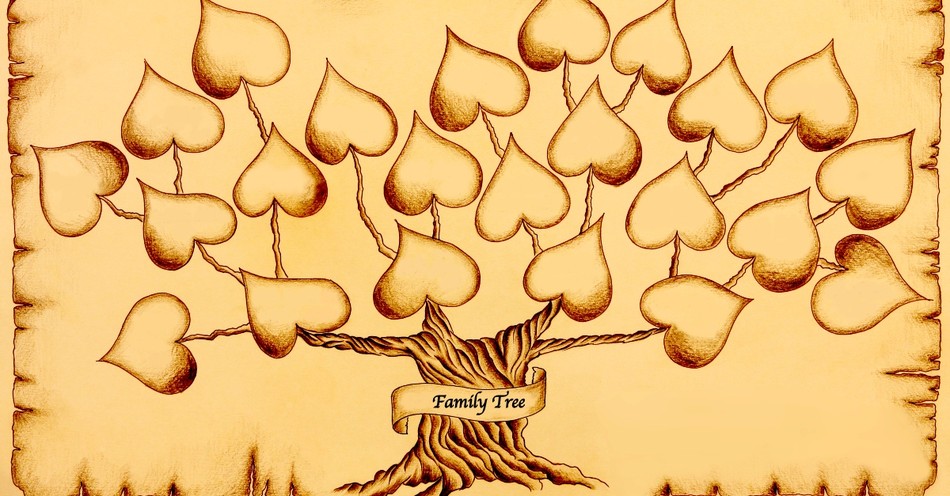Perhaps when you opened the book of Matthew for the first time, second time, or even hundredth time, you may have found yourself skipping over the first chapter. After all, it doesn’t exactly have that wow factor as it starts off the entire New Testament with a list of names of people who are in the family line of Joseph, Jesus’ earthly father.
So, why does the gospel start out this way? Why do so many sections of the Bible contain lists of names and nothing else? Why did these get into the canon of the Bible?
Believe it or not, genealogies hold great importance in Scripture. Although entire books have been written on the subject, we’ll provide a brief overview as to why we see these lists of names in the Bible, and what we can learn from them.
What’s in a Name?
We can actually find loads of reasons why we would want a holy text with genealogies versus ones that do not.
First, as mentioned in this article, genealogies bolster the historical reliability of a text. If an author provides a list, we can play a game my philosophy professor liked to call, “Follow the Footnotes.”
Any time an author provides the name of a historical person who lived, and we have historical evidence that they did, in fact, exist, especially that they existed during the time that Scripture said they existed and did what Scripture said they did, then we have compelling support for the truth found within the Bible.
For instance, the genealogy of Jesus lists King David as one of the people in the family line. We also have historical evidence that a person named King David did exist when Scripture said he lived.
Second, if we read the genealogies carefully, we discover that God can use broken people for a beautiful purpose.
Allow me to explain using the example of Jesus’ genealogy found in Matthew 1. Family names meant everything during the time of the Old and New Testament. If you had any bad apples, you wanted to remove them from the lists.
But we see something very strange happening in the genealogy of Jesus. His family tree includes:
- Judah and Tamar (a father-in-law who slept with his daughter-in-law unknowingly), a scandal (Matthew 1:3).
- Non-Jewish family members such as Ruth (Matthew 1:5). Keep in mind, Israelites during the time of Jesus scorned Jews who married peoples of other nations.
- Evil kings like Amon, Manasseh, and Uzziah.
- Among other examples.
Through this family tree, God shows us how he can turn something fragmented into a work of art for his glorious purpose.
Finally, we see how genealogies, especially that of Jesus, fulfill prophecy. For instance, because Jesus descends from David, he fulfills the passage found in 2 Samuel 7. This shows that God works not only in specific time periods but throughout history. He has woven his plan throughout every age, and he uses all people good, bad, minor, and kingly to reveal that plan to us.
Why Does This Matter?
Why should Christians, whom most of us can probably only trace our family histories a few generations back, care about these lists of names found in the Bible?
We can remember that every name plays an important role. Not only do the names show the historical accuracy of Scripture, but we see God using anyone and everyone, Jew or Gentile, rich or poor, sinful or blameless, in his ultimate plan to save and restore humanity.
Also, we can see that Jesus doesn’t hide the bad apples from his family tree. He shows that it doesn’t matter how broken a background your family or you, yourself, have hailed from, he can repurpose anything.
Finally, the genealogies in Scripture confirm prophecy. God never abandons us throughout history. Instead, he has worked on his plan to bring us into fellowship and restoration with him for quite some time. We can see many of the puzzle pieces come together when we read these genealogies.
Next time we encounter Matthew 1, or another genealogy in Scripture, let’s dive into the individual names and see how God can use even the smallest of men to tell the greatest story the world has ever known.
©iStock/Getty Images Plus/c12
Hope Bolinger is an acquisitions editor at End Game Press, book editor for hire, and the author of almost 30 books. More than 1500 of her works have been featured in various publications. Check out her books at hopebolinger.com for clean books in most genres, great for adults and kids. Check out her editing profile at Reedsy.com to find out about hiring her for your next book project.



